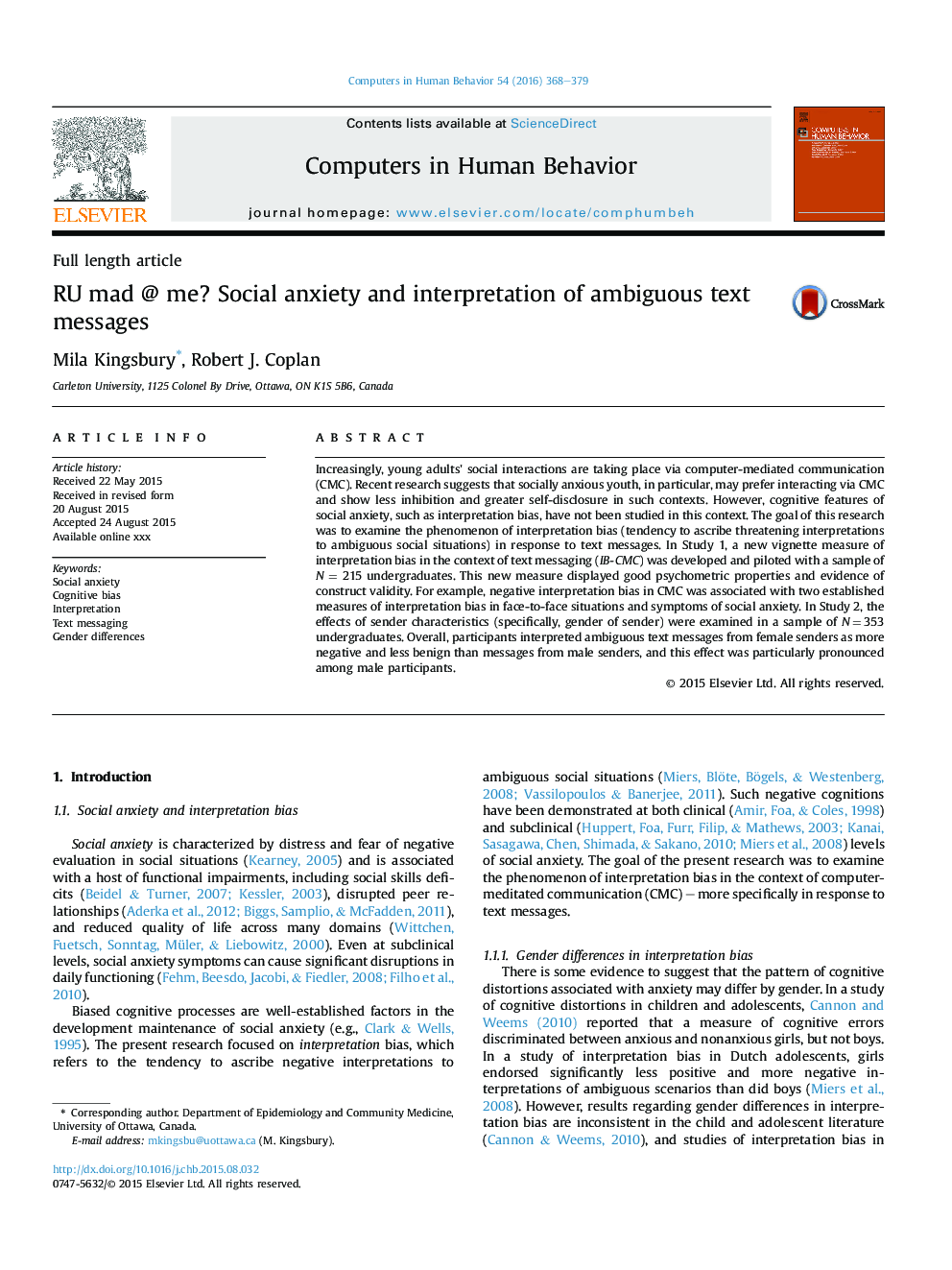| Article ID | Journal | Published Year | Pages | File Type |
|---|---|---|---|---|
| 6837858 | Computers in Human Behavior | 2016 | 12 Pages |
Abstract
Increasingly, young adults' social interactions are taking place via computer-mediated communication (CMC). Recent research suggests that socially anxious youth, in particular, may prefer interacting via CMC and show less inhibition and greater self-disclosure in such contexts. However, cognitive features of social anxiety, such as interpretation bias, have not been studied in this context. The goal of this research was to examine the phenomenon of interpretation bias (tendency to ascribe threatening interpretations to ambiguous social situations) in response to text messages. In Study 1, a new vignette measure of interpretation bias in the context of text messaging (IB-CMC) was developed and piloted with a sample of NÂ =Â 215 undergraduates. This new measure displayed good psychometric properties and evidence of construct validity. For example, negative interpretation bias in CMC was associated with two established measures of interpretation bias in face-to-face situations and symptoms of social anxiety. In Study 2, the effects of sender characteristics (specifically, gender of sender) were examined in a sample of NÂ =Â 353 undergraduates. Overall, participants interpreted ambiguous text messages from female senders as more negative and less benign than messages from male senders, and this effect was particularly pronounced among male participants.
Related Topics
Physical Sciences and Engineering
Computer Science
Computer Science Applications
Authors
Mila Kingsbury, Robert J. Coplan,
